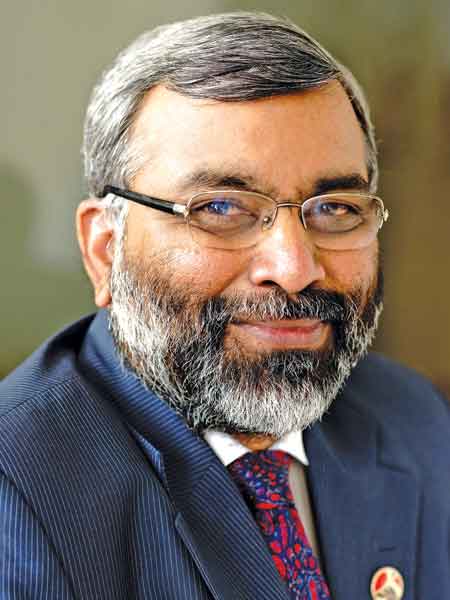It is important to have a strong desire across the entire system to improve
The changes happening on Indian Railways (IR) are a welcome step. The modernization was long overdue. Despite being amongst the largest networks in the world, IR has not been able to be up to date with technology on a consistent basis. Historically, IR has been dependent on human skills rather than pure technology, given the fact that it has been seen as an employment-generating organization.

- Sunil Srivastava
Managing Director, Balaji Railroad Systems Pvt Ltd
How do you look at the transformation taking place in Railways?
The changes happening on Indian Railways (IR) are a welcome step. The modernization was long overdue. Despite being amongst the largest networks in the world, IR has not been able to be up to date with technology on a consistent basis. Historically, IR has been dependent on human skills rather than pure technology, given the fact that it has been seen as an employment-generating organization. But if IR has to be relevant then this has to change. The organization-wide mindset must be oriented to use technology for safety, quality, and efficiency. A start has been made towards this and it is certainly a welcome step. But the important point is that this should be an ongoing process and not a knee-jerk reaction.
What steps are needed to improve the efficiency and how far the government policies support the development of Indian Railways?
Operational efficiency is a function of various disciplines and needs a coordinated effort and will to improve. While policies can be made by the government, the implementation is with the executive. It is important to have a strong desire across the entire system to improve. In my opinion, the main step is to accept the fact that improvement is indeed needed and then be open to suggestions and change. As an example, the concept of increasing the speed of trains using better-designed train sets is a good idea but only half implemented. The speeds cannot increase substantially, even though the trains are designed for it, without having access controlled tracks. This has not been done, thereby the full speed and technology potential of the Vande Bharat trains has not been fully utilized. Such limited improvement in efficiency is not in the best interest of IR.
What is your outlook on the metro rail development in India?
The outlook in this sector is certainly very bright especially given the fact that there is more focus on reducing emission. Since more and more cities are now planning for a mass transit system, there are good opportunities for all stakeholders, i.e., consultants, contractors, manufacturers etc. There are opportunities for newer technologies but this is also a challenge as the authorities need to look beyond the conventional technologies. Going forward, I see a lot of opportunities for operations & maintenance of metro systems as the Metro companies would like to run a lean organization and will hence look to outsource this major activity.
There is a challenge for Metro companies in making the system more acceptable to the citizens and self-sustaining as most of the metros have not been able to reach their full capacity. Authorities need to be open to different technologies and systems rather than just sticking to conventional heavy metro rail.
What is your vision on making Indian Railways and Metro systems into a world-class level?
World Class is a very confusing term to me. Our metro systems are on par with the best in the world and better than a number of them. Yes, there is certainly room for IR to improve its infrastructure, on-time performance, customer experience, and safety. Some beginning has been made by making the stations modern, clean and customer-centric. But just making a good building is not enough; the train operations also have to match this to give a complete experience to the traveller. My vision is that a passenger on either railway or metro system should get the same experience as an air traveller gets in all aspects whether in the train or in the station.
Hits: 0












